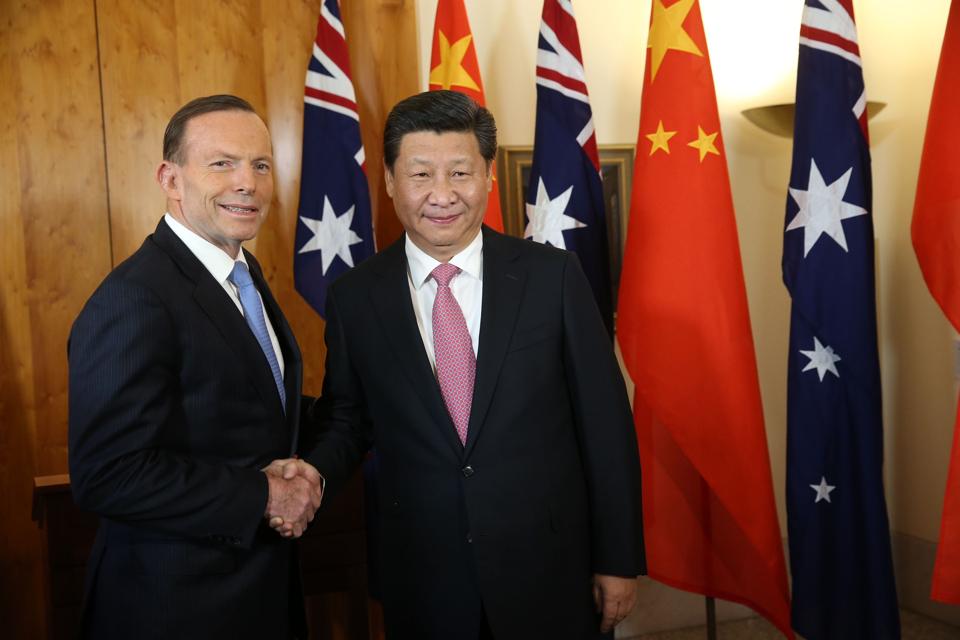Karma – an exotic word that says, “what goes around comes around” — is the stuff of countless short stories, movies, and televisions plots. In these, an abusive individual takes unfair advantage of another only to discover toward the end of the story, when he or she needs help, that people remember and repay past bad behavior in kind and in full. Such karma-inflected plots sadly seldom occur in international relations. That is why the recent news on Sino-Australian relations is so gratifying.
The story begins in the years leading up to the 2020 pandemic. Trade relations between China and Australia during that time grew ever closer. It was a natural trading relationship. Australia had powerful agriculture and mining sectors and China needed what Australia had to offer. Australian coal and iron ore went to China’s booming steel industry. Australian cotton fed China’s burgeoning textile industry. Australian wine graced the tables of China’s rapidly expanding and ever-richer household sector. In return, Australians bought the product of Chinese manufacturing, from toys to computer assemblies. By 2020, the Australian Bureau of Statistics reports, China took almost half of all Australian exports. It was fair to describe the Australian economy as dependent on Chinese buying.
The relationship suddenly fell apart in 2020. Australia’s then Prime Minister Scott Morrison called for an international investigation of the origins of Covid-19, and China’s leadership took umbrage. Whether offended by the suggestion or threatened by it, Beijing decided to force Australia to back down. Following the usual command-and-control approach Beijing uses to order its economy and govern its people, orders came down to put Australia in its place by imposing on its products onerous tariffs of between 100% and 200% or more. Australian businesses found itself in a tough spot. It had to find new markets and quickly.
Whether involved in agriculture, iron ore, or vinting wine, the recovery was painful and expensive. In the words of Lee McLean, chief executive of Australia Grape and Wine, the industry’s national association, people were “knocking on doors, wearing out the soles of their shoes” to build new markets and relationships. In the months following Beijing’s high-handed action, Australian business suffered losses but in time found alternatives to Chinese buyers. Australian coal and iron ore went to India’s growing steel industry. Australian cotton supplied Vietnam’s impressive clothing and textile effort. Grain producers sent their products further afield and even found lucrative contracts in Saudi Arabia. Vintners found substitutes in North America and Japan so effectively that last year wine shipments to China had fallen to $5 million, well down from the $770 million high in 2020.
But now China’s economy is neither as powerful nor as prominent as Beijing thought it was three years ago when it set out to punish Australia. With Chinese exports to North America, Europe, and Japan in decline, the nation’s leadership has become positively eager to cultivate new trade relationships and rejuvenate old ones. Accordingly, Beijing, in preparation for a visit from Australia’s new prime minister, Anthony Albanese, and the first since the 2020 riff, is talking about easing the tariffs it had imposed some three years ago. Prime Minister Albanese is delighted, but to the chagrin of all the government men and women involved, especially in Beijing, Australian business will have none of it. Its managers remember the tough times when China first cut them off. They have little desire to queer their new trade relationships to return to a country that so readily resorted to coercion.
Trade between Australia and China will surely grow, especially if Beijing follows through and eases the tariffs it imposed three years ago. China is too rich to resist even for the bitterest of Australian businesspeople. But unless all of Australia’s managers suffer severe memory loss, they will take a long time to return to China and likely never reach the relative dependence of 2020.
Beijing high-handed behavior has redounded to China’s detriment many times in the past. Bullying the Philippines out of areas of the South China Sea made sure that a reluctant government in Manila cooperated more with the United States on security than it otherwise would have. No doubt the Chinese tariffs of 2020, helped persuade Australia to cooperate more on defense with the United States and the United Kingdom. Beijing’s reluctance to compromise on trade conditions turned American and European governments from largely sympathetic interlockers into what now can only be described as hostile players where China is concerned. One would think after all this that Xi Jinping and his colleagues in the Forbidden City would rethink their approach, but they seem unable to help themselves.

